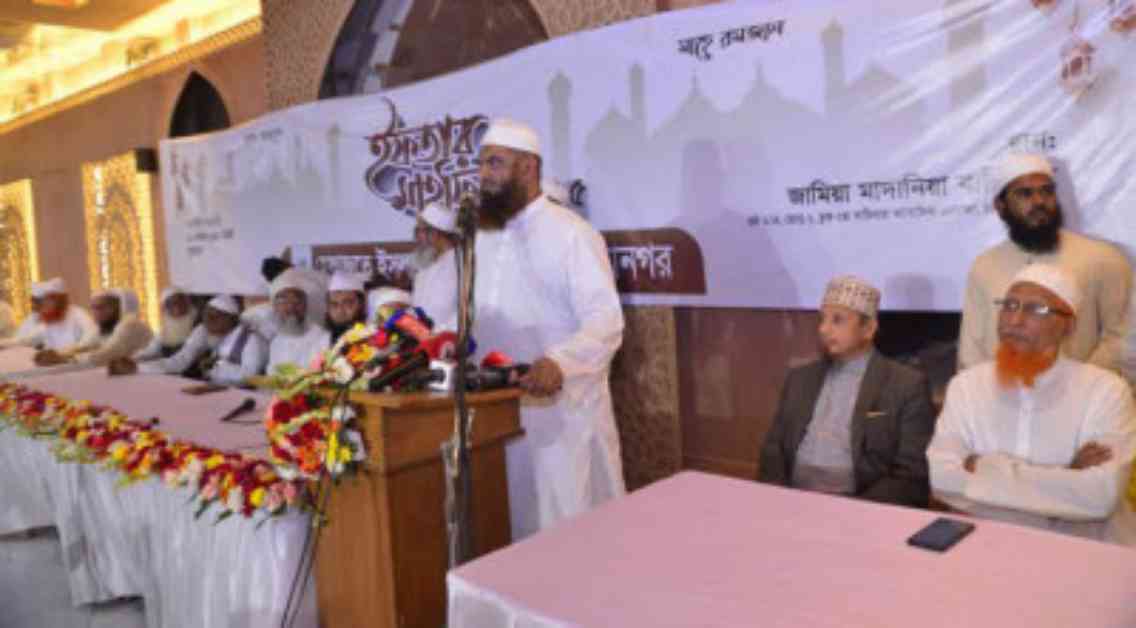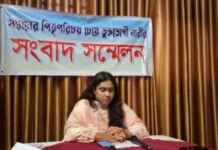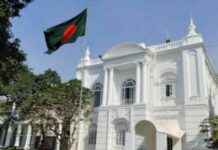Mamunul Haque’s Call for Justice: A Journalistic Perspective
In a recent gathering at the Jamia Madania Bardhara in Dhaka, Mohammad Mamunul Haque, the General Editor of Hefazat-e-Islam Bangladesh, made a bold statement that caught the attention of many. He expressed his desire to witness the hanging of Prime Minister Sheikh Hasina, the leader of the Awami League, at Dhaka’s iconic Shapla Square. This declaration, made in the context of honoring local dignitaries, has sparked both controversy and curiosity among the public.
Hefazat-e-Islam Bangladesh, under the leadership of Allama Muhammad Mamunul Haque, plans to convene a national convention after establishing committees in various districts across the country. This convention aims to showcase the organization’s vision for the future of Bangladesh. Haque emphasized that while Hefazat-e-Islam does not engage in traditional politics, its presence is essential to shaping the political landscape of the country.
The mention of Shapla Square in Haque’s speech harkens back to a dark chapter in Bangladesh’s history—the mass killing that took place there. He commended the current government for taking action against those responsible for the violence, expressing gratitude for the arrests made in connection with the incident. Haque’s call to witness Hasina’s fate at Shapla Square serves as a symbolic gesture of seeking justice for the lives lost in the tragic event.
Reflecting on the history and contributions of Hefazat-e-Islam in Bangladesh, Haque highlighted the organization’s emergence in 2013 amid a national crisis. At that time, the country was divided between two administrations—one led by Hasina and the other by Imran H, who was influenced by foreign powers. The Shahbag protest underscored the tension surrounding Bangladesh’s independence, shaping the political discourse of the era.
Haque’s narrative also delves into the role of Hefazat-e-Islam during the rise of communalism in Bangladesh. When Hindu extremism threatened the nation, the organization, led by Allama Ahmed Shafi, stood as a bulwark against radical ideologies. Haque’s assertion that Bangladesh’s freedom hinged on Hefazat-e-Islam’s presence reflects the organization’s enduring commitment to the country’s well-being.
The historical significance of May 5th in Hefazat-e-Islam’s legacy lies in the blood shed by its activists to cleanse Bangladesh from the sinister plots of the Shahbagis. On that fateful day, the fascist regime deployed all state machinery to suppress Hefazat’s peaceful resistance, resulting in the arrest of many dedicated workers.
Among the attendees at the event were prominent figures such as Mohammad Junayed Al Habib, President of Hefazat-e-Islam Dhaka City, Barkat Ullah Bulu, Vice Chairman of BNP, Babu Hossain, Chairman of NDM, Mahamudur Rahman, Editor of Amar Desh, Mofazzal Hossain Kaikobad, Vice Chairman of BNP, Aktar Hossain, Editor of Jatiyo Nagorik Committee, and Hasanat Abdullah, Chief Coordinator of the Southern region of National Citizen Committee.
As the clock ticks towards the end of the day, Mamunul Haque’s words linger in the minds of those who attended the gathering. His call for justice, rooted in the history and struggles of Hefazat-e-Islam, serves as a testament to the organization’s unwavering commitment to Bangladesh’s welfare. In this complex political landscape, Haque’s narrative sheds light on the interplay between religion, politics, and justice, urging us all to reflect on the past to shape a better future.
**End of Article**
























